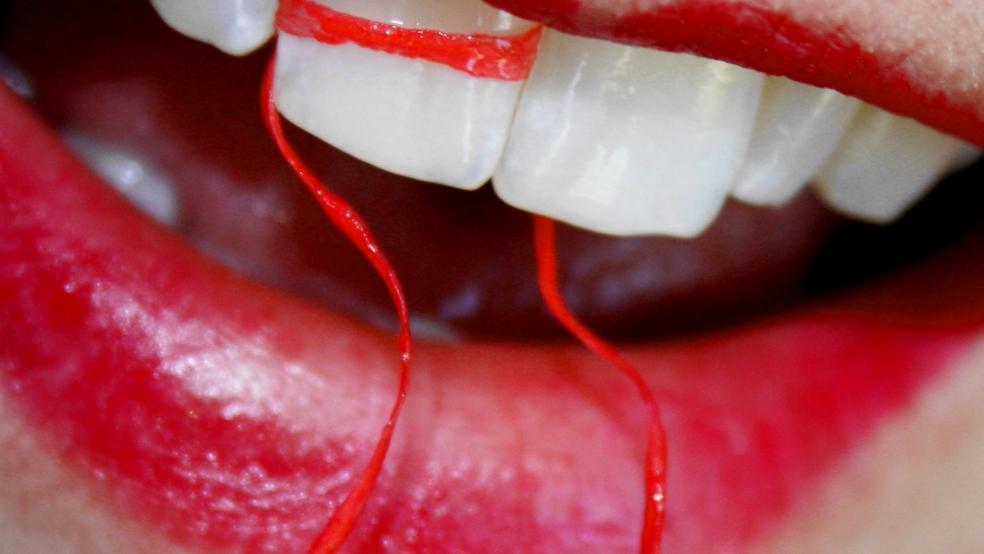An investigation by The Associated Press has many dentists grinding their teeth. The report found there was no credible evidence to back up the claimed benefits of flossing, a habit trumpeted by oral hygienists and dentists everywhere.
Water Pik, Inc. quickly applauded the report, while also rushing to note the difference between string flossing—which the AP report addressed—and water flossing, a method its products provide.
So, can you stop flossing?
The AP pored through 25 studies on flossing and found the evidence supporting its benefits to be weak, unreliable, of poor quality and possibly prone to bias. The review also concluded that there was no good proof yet that flossing was an effective technique to prevent plaque.
Related: Here’s Why Your Health Insurance Premiums Are Going Up Again
The AP looked into the studies after asking the federal government to provide the research evidence that supported its flossing recommendation in previous Dietary Guidelines for Americans. Under law, the guidelines must be backed by scientific evidence.
The federal government had no proof and this year, removed the recommendation from its guidelines. In fact, there are no dental hygiene recommendations in this year’s guidelines because the advisory committee did not make oral health a priority.
“We didn’t look at oral health outcomes, because it was not a priority area that the committee chose to focus on,” says Dr. Barbara Millen, the chair of advisory committee. “We took a different approach than previous guidelines, focusing on the totality of the diet.”
Related: How to Protect Yourself From the Zika Virus
The AP’s findings also contradict what has long been recommended by the American Dental Association and the American Academy of Periodontology, both of which supplied studies to the AP to back their claims. But the AP noted that those studies used “outdated methods or tested few people.” One study tested only 25 participants after one flossing. Others only lasted two weeks, far too short a period of time for a cavity or dental disease to develop.
The AP also noted that the ADA allowed companies that make floss, such as Procter & Gamble and Johnson & Johnson, to design their own studies to prove the effectiveness of their product. But the two-week study provided by Procter & Gamble to support flossing benefits was deemed “irrelevant” by the AP investigative team. J&J declined to provide a study.
In fact, the AP noted that sloppy flossing can hurt gums, teeth or dental work. In rare cases, flossing can loosen bacteria that can end up causing infections, according to medical literature reviewed by the news organization.
Related: The Doctor Shortage in the US Is Real – and It’s Getting Worse
So, should you skip flossing tonight after dinner? Maybe—unless you ate spinach.





